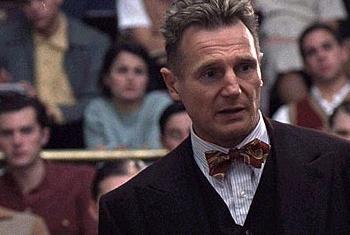I masturbate every day. I’ve had premarital sex. I’ve had sex with multiple partners. I’ve had sex with younger women, older women, skinny women, chubby women, passive women, aggressive women… I’ve kissed dudes. I fucked a pony. Kidding! Seriously, sex has played a large part in my life, as it has with every man and woman that ever lived. Then why aren’t we more open about it? Oh, sex is used all the time to sell jeans and CDs and magazines, and it’s joked about a lot. But how much do we really know about what gets the people around us off?
Imagine how it was in the 1940s, when the only sexual act which was approved was marital sex, and only when intended to make babies! People knew very little about sex, and what they did know was mostly urban legends (masturbating will make you go blind!), paranoid hygiene course nonsense (if you have sex you’ll get sick and die!) and “morality disguised as fact” (oral sex will make you sterile!). It took the work of Professor Alfred “Prok” Kinsey to make people realize that “the gap between what we think people do sexually and what they actually do is enormous”. He also showed how there’s no such thing as ‘normal’. When you apply scientific methodology to human sexuality, there’s only ‘common’ or ‘rare’; there’s no ‘right’ way to do it.
“Kinsey”, written and directed by Bill Condon, attempts to show the context in which Kinsey conducted his sex studies and the impact they had on American culture. As with all biopics, it also focuses on the man’s personal life, which is all right since who Kinsey was somewhat explains what he accomplished. Yet it gets tiresome how something as complex as a human life is always made to fit into neat little storytelling conventions, and three-dimensional persons become stereotypes: the Authoritative Father, the Long-Suffering Wife, the Loyal Friend, the Arrogant Naysayer, etc.
Using black & white vignettes in which Kinsey’s assistants are trained to do interviews about sexual history by using him and his wife as subjects as a framing device, the film goes back to Kinsey’s difficult relationship with his strict Methodist father, how he found appeasement in nature and the way that led to his passion for biology (“the science of life”) in general and gall wasps in particular. We see him working as a college professor, falling in love with a student, who becomes a good little wife who will stick with him through the good and the bad times. This part must be the most time-worn. How many times have we seen men who dedicate themselves to their work, with their wife feeling abandoned yet staying supportive? It worked for A Beautiful Mind, I guess, so what do I know, etc.
More interesting is Kinsey’s interest in homosexuality, as it directly ties into his professional field. One of the things that his Sexual Behavior in the Human Male shows is that same-sex feelings are hardly as unusual as some want to think. In fact, his study finds that very few men are 100% gay or straight, instead most fall into a gray area in between. Kinsey himself was bisexual and, while he and Mrs. Kinsey had great sex (even though he didn’t fit in her at first!), he also enjoyed some man-to-man action on the side. This aspect of the movie is particularly relevant now, after 11 States have shown their ignorance, intolerance and fear of the idea of dudes doing dudes.
Another thing that is still true today is the sexist hypocrisy of our society. Whereas Sexual Behavior in the Human Male is well received in spite of some controversy, Kinsey’s follow-up on the Human Female offends the hell out of people. “What did you expect? You’re telling people that their grandmothers and daughters are masturbating!”
This leads to another biopic convention, the third-act fall from grace where our hero loses it, goes too far, etc. In this specific case, Kinsey becomes almost as much of a preacher as his old man, even if their views are diametrically opposed. And then of course, there’s the obligatory redemption of sorts. Kinsey kinda makes up with his dad, a woman makes him realize that his life’s work might have had a positive effect after all (“You saved my life, sir.”), he’s got this cryptic tree speech that’s supposed to justify his wife’s long-suffering, and then the film’s over.
Now, I feel like I’ve disproportionably focused on the things that I don’t find so good about “Kinsey”. But there is a lot that I do like about it! Bill Condon’s screenplay and direction might go for the conventional at times, but most of his movie is full of fascinating insights and entertaining to boot. The actors are downright extraordinary, with a large supporting cast that includes such enjoyable performers as John Lithgow, Tim Curry, Peter Sarsgaard, Timothy Hutton, Oliver Platt and Lynn Redgrave. And at the center of it all, holding the film together, the great Liam Neeson as Kinsey and the wonderful Laura Linney as his wife.

